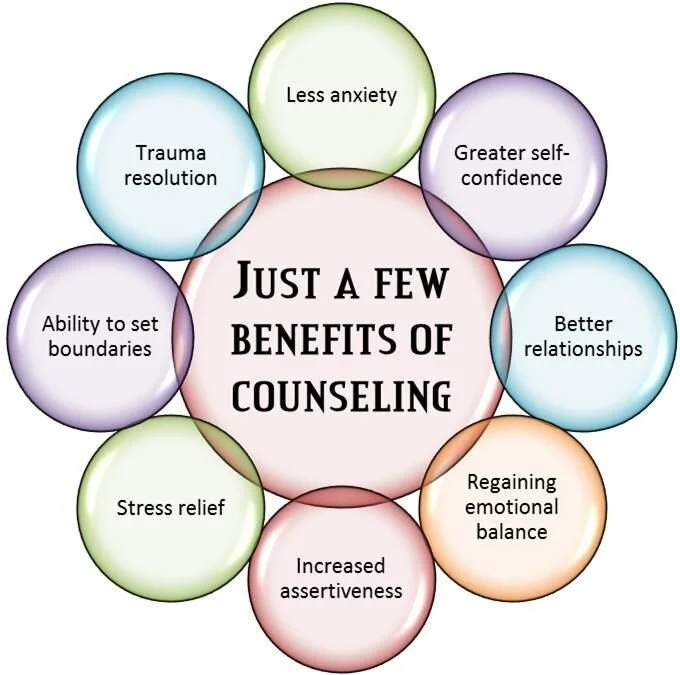Commonly Asked Questions
Why do people seek therapy?
People come into therapy for many reasons. Some need to respond to unexpected changes in their lives, while others seek to address serious mental health issues. Therapy can provide support, problem-solving skills, and enhanced coping for issues such as depression, anxiety, bipolar disorder, borderline personality disorder, bereavement, lack of confidence, relationship troubles, stress management, body image issues, and more.
-
A treatment plan will be developed to support each client, couple, or family’s specific needs. That plan will guide the clinical counseling process. During sessions, the client or clients are expected to participate fully in an open and honest way. A typical session lasts between 45 and 60 minutes. Frequency of sessions is determined in collaboration with the therapist. At times, clients may be asked to take certain actions outside of the therapy session, such as reading a relevant book or keeping a journal. Counseling is most effective when the client or clients are active participants, both in and outside of the therapy sessions.
-
A number of benefits are possible from participating in psychotherapy. Therapy can provide a fresh perspective on a difficult problem or assist clients in learning tools and techniques that support their ability to cope with any number of mental health challenges. Many people find therapy to be a tremendous asset to managing personal growth, interpersonal relationships, family concerns, serious psychopathological illness, litigation, and more. The benefits clients obtain from therapy depend on how well they participate in the process and put into practice what they learn.
-
If you aren't sure what your goals are for therapy, your first task is to figure that out. It may take several sessions before a direction is clarified. During the course of therapy your goals may change. However, establishing a direction for therapy will help you get the most out of the experience.
-
Most insurance is accepted however things can change rapidly, so it is always best to check with an NVC administrator.
-
Public law and ethical standards of practice protect the confidentiality of all communications between a client and a psychotherapist. Information is not disclosed without written permission, however, there are a number of exceptions to this rule. In cases of suspected child abuse or dependent adult or elder abuse or in cases of threatened harm to self or harm to others there is a duty to warn and protect.
